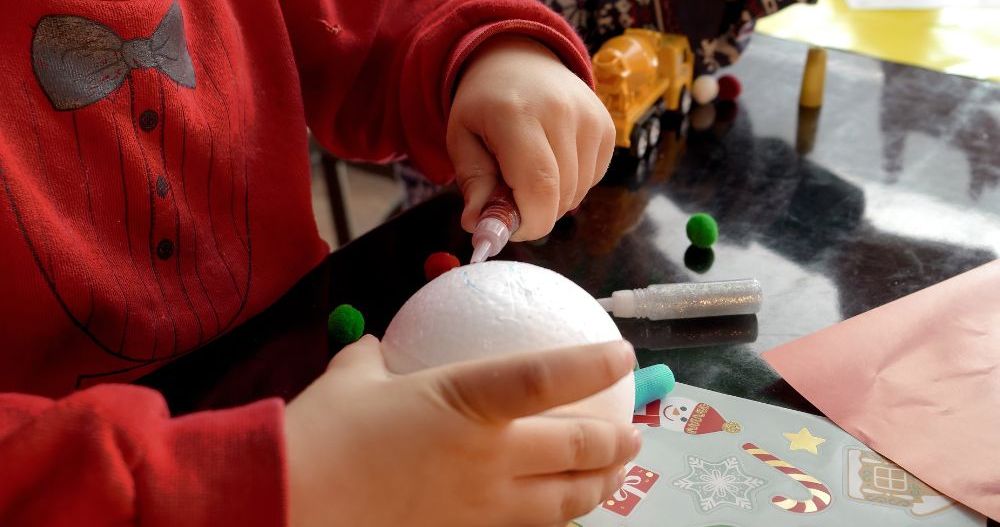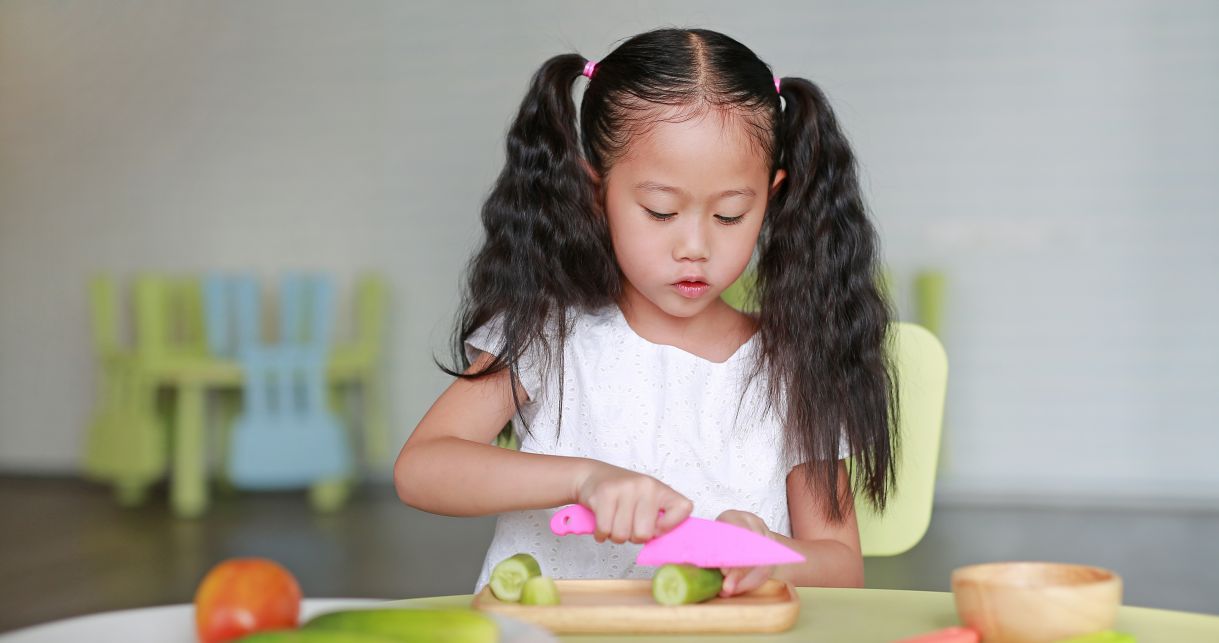min read
min read
min read
min read
Here at Busy Bees, we wholeheartedly support you on this journey, wanting to support you and your child in any way possible.
So, why is a balanced diet so important? The importance of a healthy and balanced diet for children is critical in their overall wellbeing, and more importantly, the vital role it plays in supporting their overall physical and mental development.
Promoting healthy eating to children definitely isn’t an easy task, and it’s perfectly normal for toddlers to refuse to eat, or even taste new foods. However, with eating habits forming within the first few years of life, supporting your child to adopt smart eating habits from a young age can contribute to their dietary habits later down the line.
Our blog aims to provide you with our top tips and advice on how you can encourage positive eating habits with your children at home.
As with many things children learn, they pick things up through observation. One of the main and most important strategies to promote healthy eating is as simple as letting them see parents, friends and siblings enjoying eating healthy foods! By doing so, they are more likely to be willing to taste and eat that food too.
Although it’s not always possible, allowing your child to have the same foods as you at mealtimes and where possible, sitting down to eat together can be hugely beneficial in laying the foundations for positive eating habits.
Discussing where food comes from can support your child’s understanding of staying healthy, as well as further developing their understanding of the world, while expanding their vocabulary.
Tip! Why not talk to your child about the different foods they are eating? For example, you could tell them that the milk they are drinking will help keep their teeth and bones strong, or that their banana snack means they will have lots of energy!
Introducing healthy children’s food doesn’t have to be a daunting task. Allow your child to choose from different healthy foods, such as choosing between drinking milk or water, or having cucumber or tomato for their snack or alongside their lunch. If your child only eats small amounts, you can support this by offering smaller portions of food, praising them even if they only eat a little bit.
Although choosing on behalf of your child is often the easier option, to encourage positive eating habits, you can allow your child to choose what they put on their plate from a selection of healthy options. This can help them to make healthy choices and develop their fine motor skills.
Tip! Why not try having some salad or vegetables they can serve using tongs or a spoon? The sense of independence can often mean that children are more willing to eat food that they have chosen to put on their plate themselves.
Whether it’s lunch in the garden or breakfast in a different room or area of the house, a change of scenery can often disguise smart eating habits! By making mealtimes a positive and fun experience, they may not even realise that they are eating healthy food.
Tip! Why not explore different shapes and textures within meals, for example, using cookie cutters is a simple but effective way of encouraging children to eat fruit or vegetables. Or why not introduce a weeknight theme based on your child’s interests, such as animals – mashed potato sheep with mud gravy, or perhaps set up a doll’s dinner party.
One of the more obvious strategies to promote healthy eating is something you probably do without even realising. When children are not keen on their food or refuse to eat something, it can be disheartening (especially if you've spent a long time preparing something delicious!). However, try to ignore any challenging behaviour and stay calm. Instead, focus on praising positive behaviour such as sitting nicely or holding their cutlery correctly.
Tip! Giving encouragement and praise when your child tries something new can often distract them from the fact that they aren’t keen on the food in front of them. By promoting this good behaviour at the dinner table, you are creating a more positive eating experience overall.
Tastebuds are constantly changing, so try not to get disheartened if your child decides they don’t like the healthy food you’ve offered them. If children are forced or pressured to eat specific foods, this may lead to them building up a sense of negativity towards these foods and they could become fussy with certain foods. It may take multiple attempts before your child decides they want to try a certain food, which is why it’s a good idea to continue offering healthy food options. Never force them to eat everything on their plate; this can lead to children overeating. Instead, praise them for having a try.
Tip! If your child doesn’t like the food you’re offering, try giving it to them another time, or perhaps in a different environment. There are so many factors impacting positive eating habits, even a simple change of scene may help with your child’s eating behaviour.
By applying a couple of our tips, we hope your child will form positive eating habits so that mealtimes can be an enjoyable experience. It’s important to remember that each child develops at a different pace, so what works for one person may not work for another, so do what works for you and your child.
You can read more about how we support and promote healthy eating within our nurseries by reading our page, where you can explore the wide variety of food options available, and read our NHS accredited menu in full.
If you’re an existing Busy Bees parent, don’t forget to check out UP at Busy Bees – Unleashing Potential for more healthy eating advice and recipe inspiration.
by
Published: 09/03/2022
Share Blog

by Busy Bees 26/01/2026
10 min read

by Busy Bees 01/12/2025
5 min read

by Busy Bees 01/12/2025
5 min read

by Busy Bees 27/11/2025
6 min read

by Busy Bees 25/11/2025
7 min read